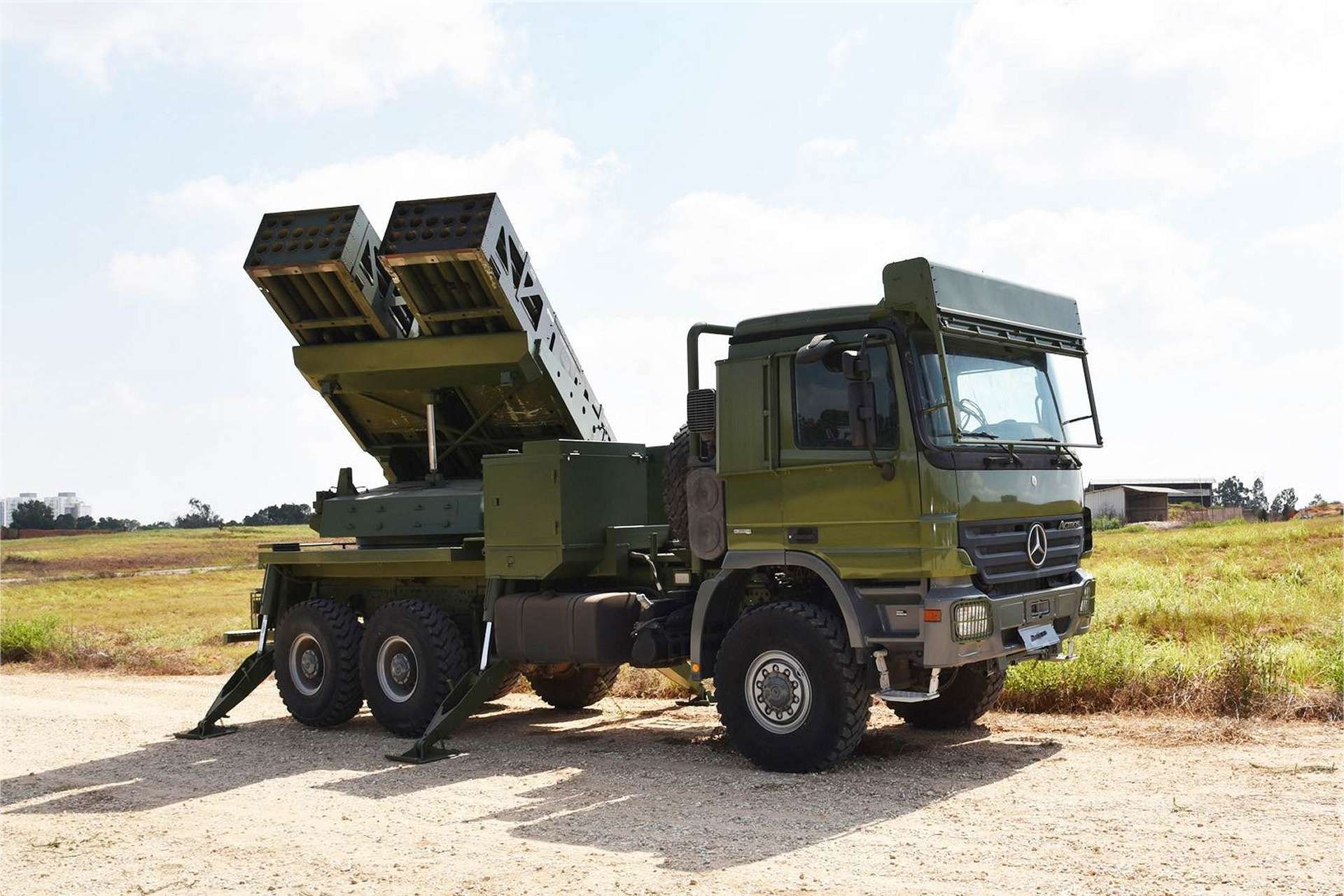Breaking news
France and Germany Aim for Cooperation in Long-Range Strikes.
France and Germany are considering enhanced collaboration in the field of long-range strikes. This initiative follows a series of shared European defense efforts, despite recent criticisms about the effectiveness of Franco-German partnerships in this sector. In a report titled "The Defense Industry, Provider of Strategic Autonomy in Europe?", two French deputies argued that France had relied too heavily on cooperation with Germany over the past decade. They advocated for diversifying partnerships with other European countries, such as Sweden and Poland.
Follow Army Recognition on Google News at this link

Germany plans to order EuroPULS systems proposed by the KNDS Germany (formerly Krauss Maffei Wegmann) and Elbit Systems tandem (Picture source: Elbit System)
The parliamentarians highlighted that three of the five major programs launched in 2017 by President Macron and Chancellor Merkel have been abandoned or suspended. The future maritime patrol aircraft program (MAWS) was effectively abandoned after Germany acquired five P-8A Poseidons from Boeing. Additionally, the Germans withdrew from the Tiger helicopter modernization program to standard 3, and the future artillery program "Common Indirect Fire System" (CIFS) was postponed indefinitely, with realization not expected before 2045.
However, French and German industries continue to work together on projects funded by the European Commission, notably FIRES (Future Indirect fiRes European Solutions) and E-COLORSS (European COmmon LOng Range indirect Fire Support System). The latter aims to prepare a European solution for a new multiple launch rocket system.
In parallel, France and Germany have each undertaken initiatives to renew their ground-based deep strike capabilities. The French Directorate General of Armament (DGA) announced the launch of an innovation partnership to develop a "Long-Range Strike" capability and acquire at least 13 systems by 2030. For this project, Safran has partnered with MBDA, while Thales has collaborated with ArianeGroup, targeting strikes on targets located between 150 and 500 km away.
On the German side, according to Bundestag documents, Germany plans to order EuroPULS systems proposed by the KNDS Germany (formerly Krauss Maffei Wegmann) and Elbit Systems tandem. MBDA Deutschland has also developed the Joint Fire Support Missile (JFS-M), with a range of over 300 km and network-capable.
During the recent Franco-German Defense and Security Council, which concluded President Macron's state visit to Germany, Paris and Berlin expressed their intention to strengthen European and Euro-Atlantic security with solid and credible European defense capabilities. The joint declaration from the Élysée emphasized that France and Germany will continue to contribute to discussions on the development of the European defense industry, addressing strategic gaps and reducing technological and industrial dependencies. The two countries announced their intention to launch a general and inclusive long-term cooperation in the field of long-range strikes, aiming to strengthen the European industrial and defense base to improve their military capabilities.
Defense Minister Sébastien Lecornu provided few details on this cooperation, despite usually conveying presidential intentions. His German counterpart, Boris Pistorius, mentioned in a joint press conference in March regarding the Main Ground Combat System (MGCS) that he had received a mandate to advance the development of long-range strike missiles, but the German Defense Ministry did not provide further details when asked.
Lastly, France and Germany reaffirmed the essential role of nuclear deterrence in the security of Europe and NATO, as well as the significant contribution of French independent strategic nuclear forces to the Alliance's overall security. There are also plans to integrate the Franco-German brigade into NATO's plans.


























